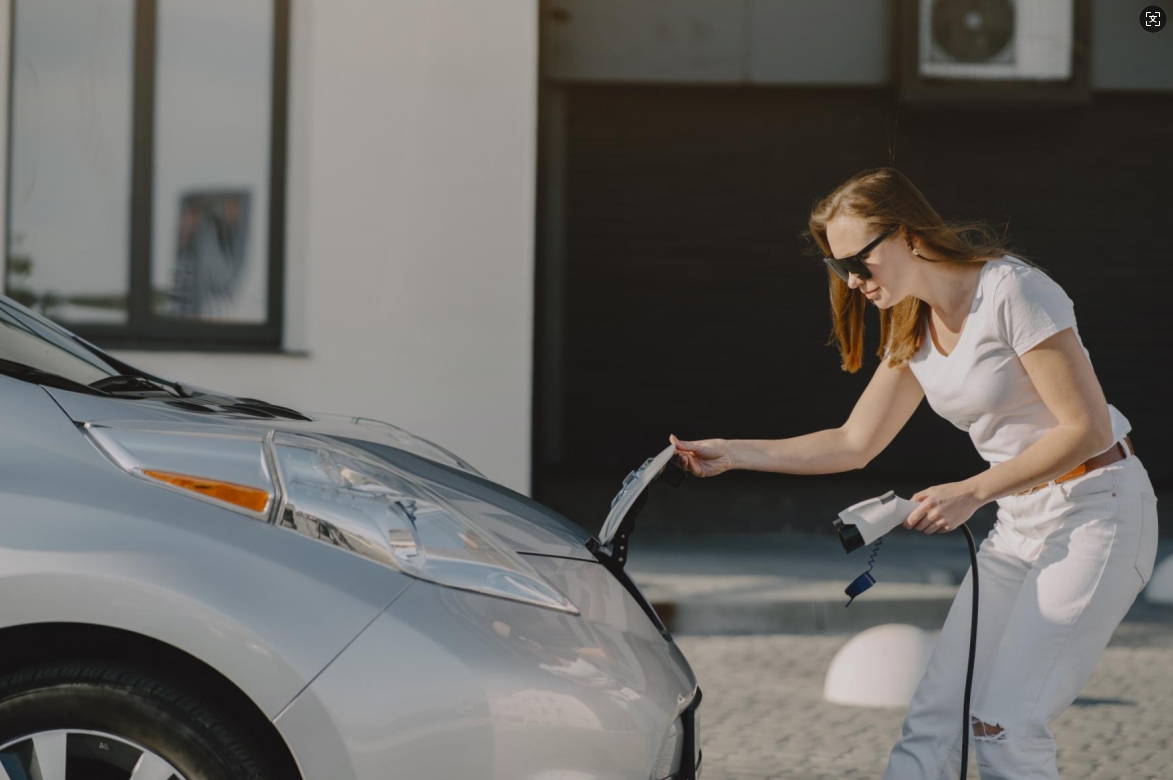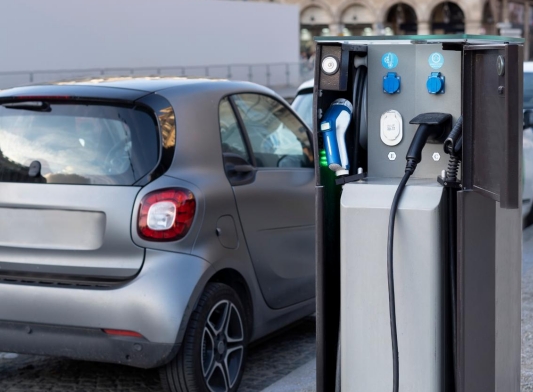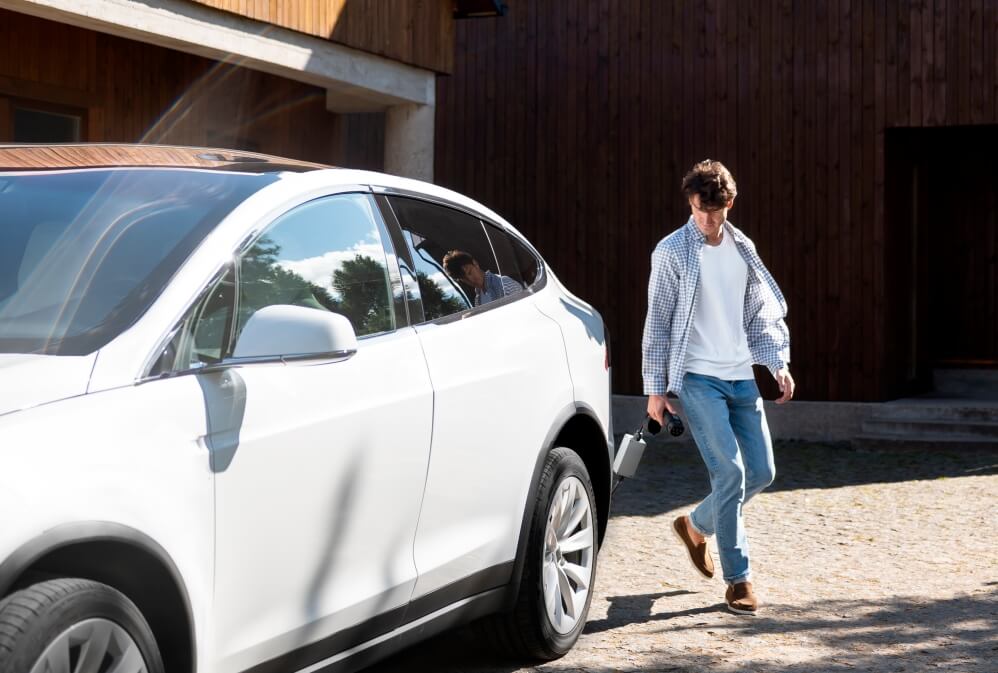Why Portable EV Charging is a Must-Have for Every EV Owner
Electric vehicles (EVs) are no longer a futuristic concept—they’re part of our daily lives. As EV adoption continues to grow worldwide, with over 10 million EVs sold in 2022 alone, according to the International Energy Agency’s Global EV Outlook, one question remains crucial for every EV owner: How can I ensure my vehicle stays charged wherever I go? This is where portable EV charging comes in, offering unparalleled flexibility and peace of mind. Imagine never worrying about finding the next charging station because your solution is right in your trunk. Whether on a weekend getaway or navigating city traffic, portable EV chargers keep you powered whenever needed.
What is Portable EV Charging?
Portable EV charging refers to compact, mobile devices that allow EV owners to charge their vehicles anytime, anywhere. Unlike fixed home charging stations or public chargers, portable EV chargers can be plugged into standard household outlets or higher-power sockets. These chargers are designed with versatility, ensuring compatibility with various EV models and charging interfaces like Type1, Type2, and GB/T. For more on EV charging standards, visit the Open Charge Alliance.
Key features include:
- Compact Design: Easy to store in your vehicle, lightweight for hassle-free transport.
- Plug-and-Play Functionality: Simple setup—plug it into any compatible outlet.
- Universal Compatibility: Works with most EV models globally, supporting different power outputs and connectors.
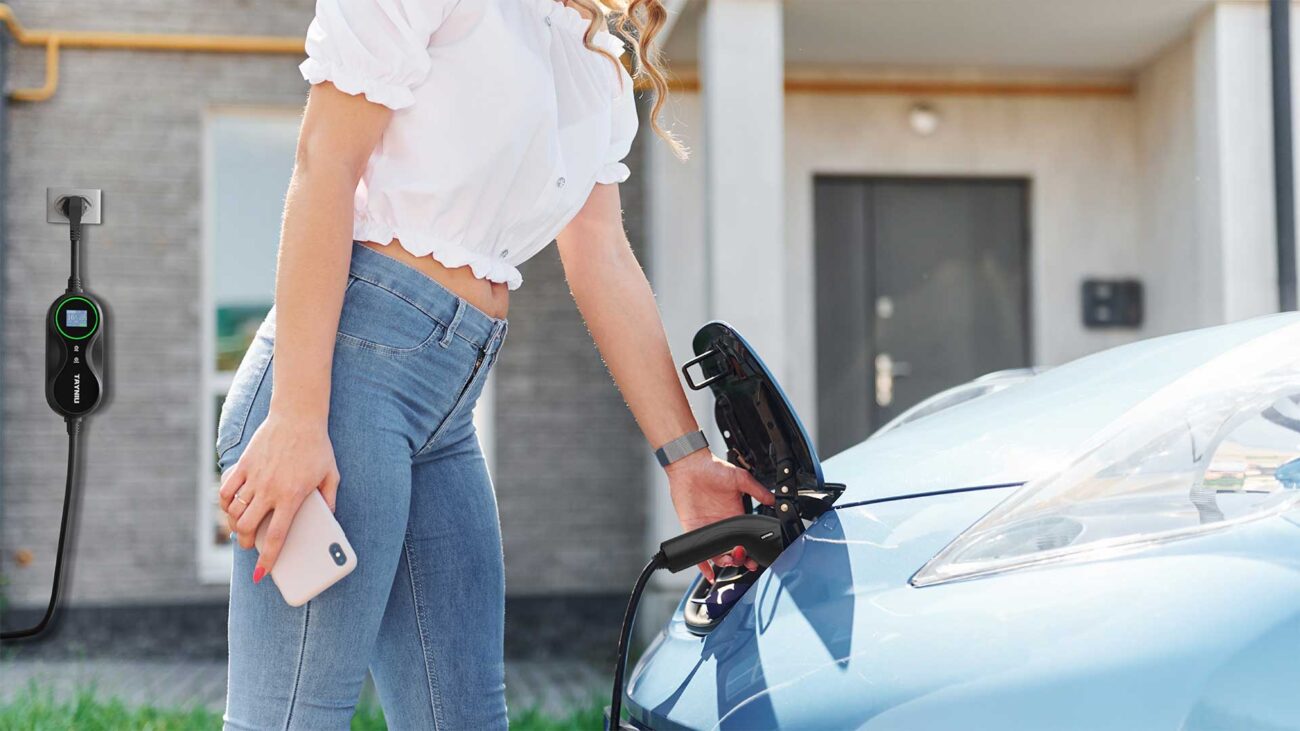
Top 5 Reasons Why Portable EV Charging is a Must-Have
1. Unmatched Convenience with Portable EV Charging
The biggest advantage of portable EV charging is convenience. Whether at home, visiting friends, or on a road trip, you can charge your car without relying on public charging stations. It allows you to charge anywhere there’s an available power source. Imagine pulling over at a rest stop, plugging into a standard outlet, and continuing your journey stress-free.
2. Peace of Mind for Long Trips
Range anxiety is a common concern for many EV owners, especially during long journeys. A portable EV charger acts as a safety net. You can plug in and top up your battery even in an area with limited charging infrastructure. This peace of mind is invaluable during road trips or unexpected detours. For instance, if you’re exploring rural areas or camping in remote locations, having a portable charger ensures you’re never stranded.
3. The Cost Benefits of Portable EV Charging
Relying solely on public fast chargers can be expensive. Portable EV chargers allow you to use standard outlets, significantly reducing charging costs. According to the U.S. Department of Energy, public fast-charging stations can cost up to $0.50 per kWh, while home charging costs are often below $0.15 per kWh. Plus, there’s no need to invest in multiple charging installations if you frequently travel between locations. Consider this: public fast charging stations can cost up to $0.50 per kWh, while home charging costs are often below $0.15 per kWh. Over a year, this could result in substantial savings for regular EV drivers.
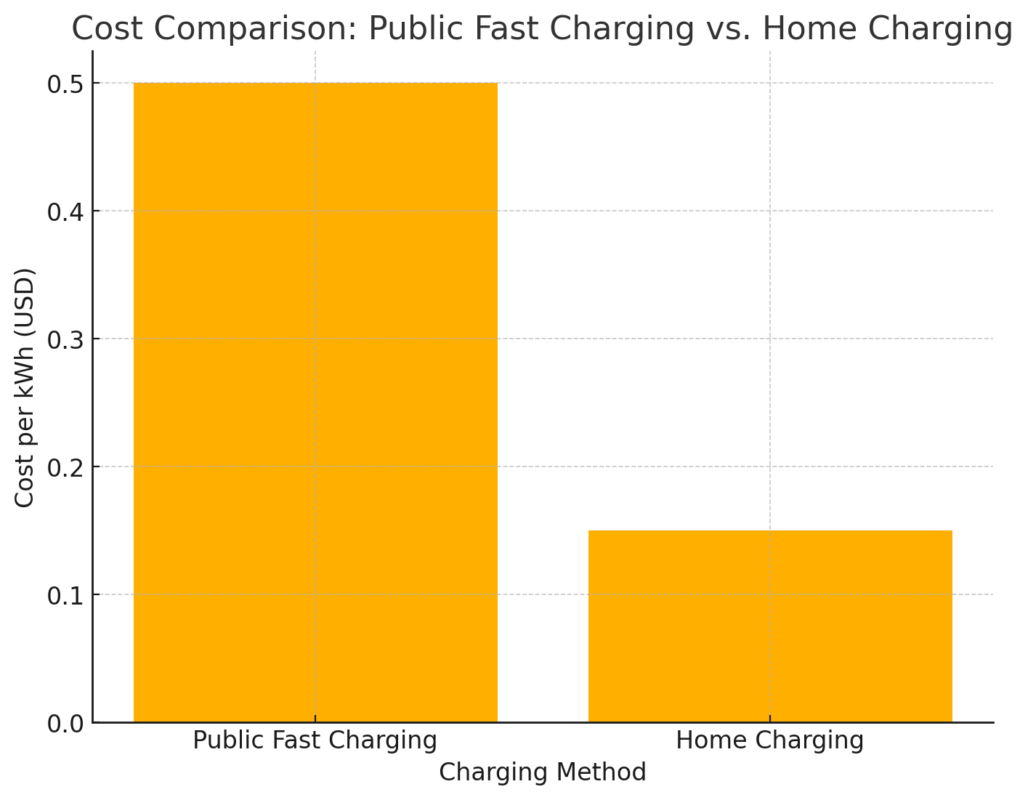
4. Easy to Use and Travel-Friendly
These chargers are lightweight and compact, making them perfect for travel. You don’t need special installation skills; just plug it into a compatible socket, and you’re ready. This ease of use is especially beneficial for those new to EV ownership. Some models have intuitive LCD screens displaying charging status, voltage, and current levels for real-time monitoring.
5. Versatile Compatibility with Portable EV Chargers
Most portable EV chargers support multiple plug types, ensuring compatibility with different EV models. Whether you own a Tesla, Nissan Leaf, Hyundai Kona, or any other electric vehicle, a portable charger can adapt to your needs. Some even feature adjustable current settings, smart displays, and built-in safety mechanisms like overcurrent and temperature protection for added security.
How to Choose the Right Portable EV Charger
When selecting a portable EV charger, consider the following factors:
- Charging Speed: Options range from 3.5KW to 7KW for faster charging, depending on your vehicle’s battery capacity.
- Durability: Look for weatherproof ratings like IP66 for outdoor use, ensuring protection against dust and water.
- Safety Features: Overcurrent protection, temperature monitoring, surge protection, and short-circuit prevention are essential for safe operation. It’s advisable to check certifications from organizations like Underwriters Laboratories (UL) to ensure the highest safety standards.
- Cable Length: Ensure it’s long enough to reach your vehicle comfortably, especially if charging in tight or unconventional spaces.
- Smart Features: Some chargers offer Bluetooth or Wi-Fi connectivity, allowing you to monitor and control charging remotely through a mobile app.
Real-Life Scenarios Where Portable EV Chargers Shine
- Road Trips: Charge your EV anywhere, even in remote areas without public charging stations—perfect for scenic routes and spontaneous detours.
- Emergency Situations: Ideal for unexpected battery drains. Imagine being stuck in traffic with a low battery—a portable charger can be a lifesaver.
- Urban Living: Perfect for apartment dwellers without dedicated charging spots. Plug into shared outlets in garages or parking lots with ease.
- Natural Disasters: During power outages or extreme weather, portable chargers provide a backup charging solution when traditional infrastructure fails. For emergency vehicle preparedness tips, refer to FEMA’s guidelines.
FAQ: Everything You Need to Know About Portable EV Charging
Q1: What is the best portable EV charger for long trips?
A: The best portable EV charger for long trips offers fast charging (7KW), a weatherproof design (IP66), and universal compatibility with multiple EV models.
Q2: Can I use portable EV chargers with any electric vehicle?
A: Yes, most portable EV chargers support Type1, Type2, and GB/T connectors, making them compatible with nearly all EVs.
Q3: Is portable EV charging faster than public charging stations?
A: No, public DC fast chargers are typically faster. However, portable EV chargers offer unmatched flexibility and convenience when public stations aren’t available.
In Conclusion, portable EV charging isn’t just a convenience—it’s a necessity for modern EV owners. It offers flexibility, cost savings, and peace of mind, ensuring you’re never stranded. As EV adoption continues to rise, having a portable charger in your car is as essential as having a spare tire. It empowers you to drive confidently, knowing you’re prepared for any charging scenario.
Ready to take control of your EV charging? Discover the best portable EV chargers today and experience the freedom of worry-free driving. Stay powered, stay confident, and embrace the future of electric mobility.
Last Updated on February 5, 2025 by tayniu

